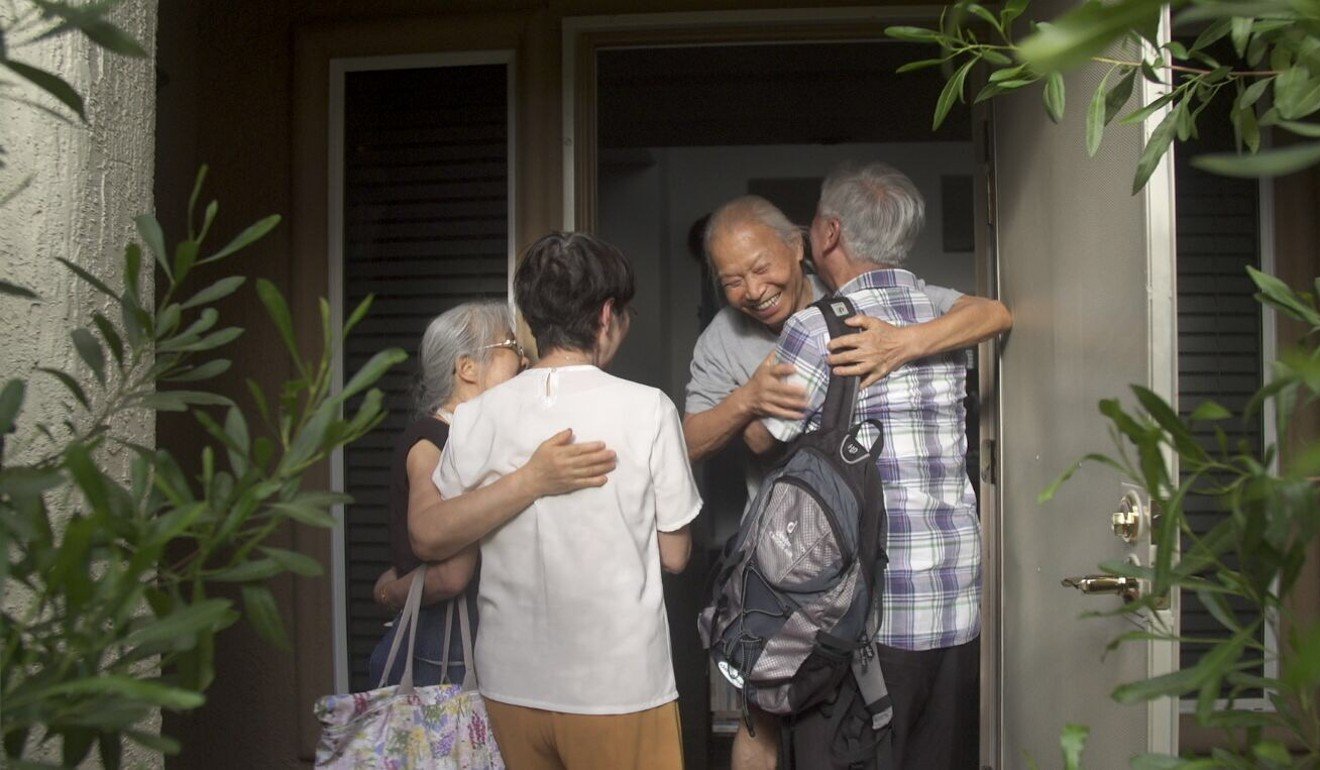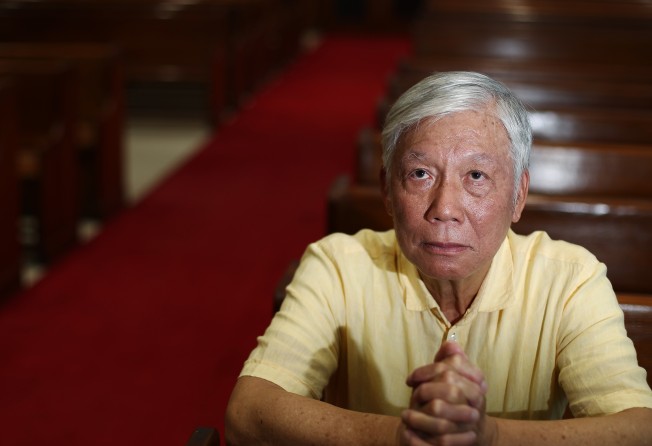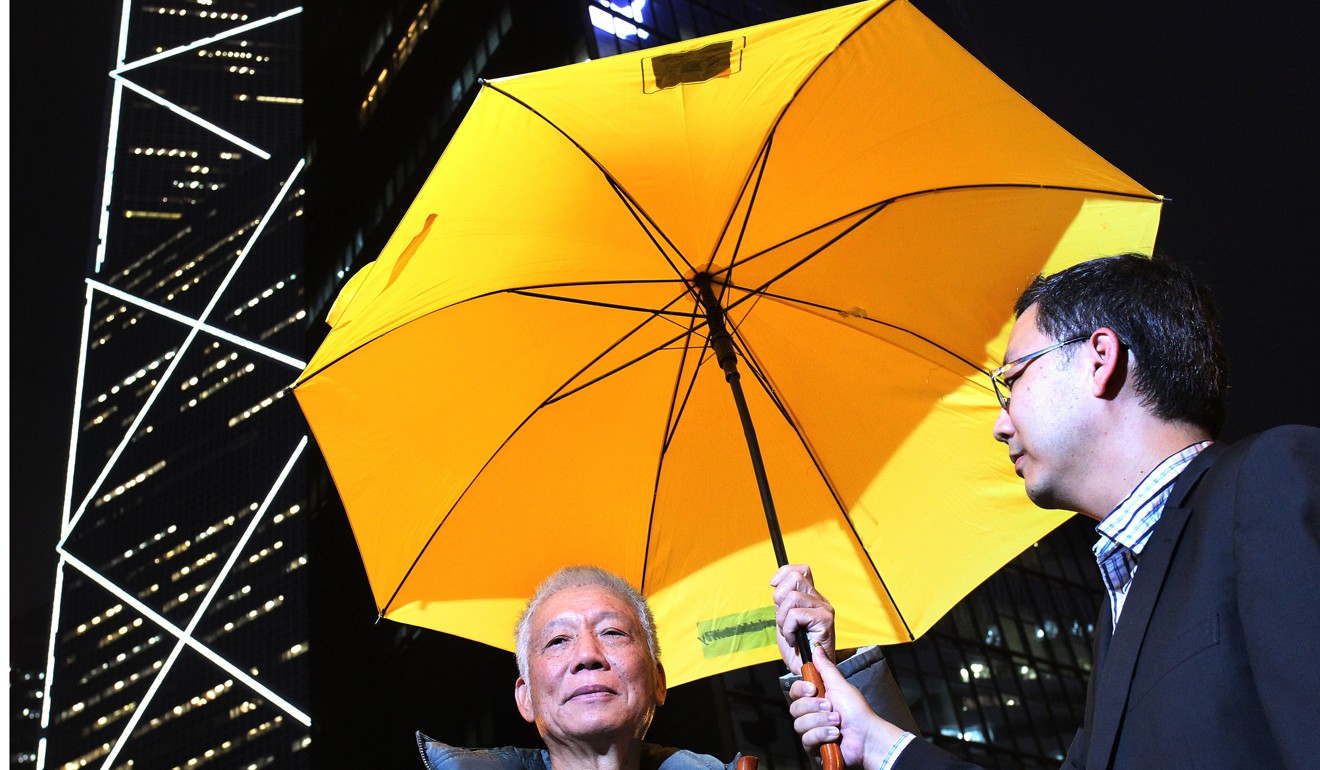
Occupy co-founder Reverend Chu Yiu-ming anxious but adamant ahead of trial and potential jail term
Long-time activist, 73, visits exiled Chinese dissidents and prepares to-do list as court hearing looms

Occupy co-founder Reverend Chu Yiu-ming crossed off a long-standing item on his to-do list in July – visiting some of the exiled Chinese dissidents in the US whom he had not seen for years.
Following the bloody Tiananmen Square crackdown in 1989, Chu co-led a legendary underground mission code-named “Operation Yellow Bird” to spirit hundreds of dissidents – including Beijing student leaders Wuer Kaixi and Feng Congde – out of the mainland via Hong Kong, right under the noses of the authorities.
Fast-forward to 2017 and Chu, now 73, is preparing to be jailed in Hong Kong for his leading role in the pro-democracy Occupy movement in 2014.
“I am getting old, and I did not know if I could still see them [after serving my jail term]. I really wanted to meet them once more,” Chu told the Post in an exclusive interview ahead of his pretrial hearing on Tuesday.

During his three-week stay in the United States, Chu had emotional reunions with several dissidents he had helped rescue, including renowned painter Gao Ertai and lawyer Xiang Xiaoji.
The pastor also revisited Columbia University – where he went on study leave two decades ago. He had been advised to leave Hong Kong ahead of the city’s handover to the Chinese rule in 1997 amid the political uncertainty at the time.
Chu and academics Dr Chan Kin-man and Benny Tai Yiu-ting, the three co-founders of Occupy Central, face three charges relating to public nuisance over their roles in the 2014 civil disobedience movement. Each charge carries a maximum sentence of seven years in prison.
Chu, who is suffering from various health issues involving his eyes and digestive system, did not hide his anxiety over the possible jail time.
Occupy leaders make first Hong Kong court appearance flanked by 100 supporters with yellow umbrellas
“I’ve always had great fear of the feeling of confinement – I even request aisle seats on flights. That fear of being confined to four walls lingered on for quite some time [in the past months],” Chu said. “But I have learned to overcome it after finding out those dissidents I visited in the States have experienced even tougher times than us.”
Chu has drafted a new to-do list to help him utilise his time behind bars. Tasks include finishing a set of books related to theology and wrapping up his memoir documenting his decades-long fight for democracy in Hong Kong.
“Spending time in jail should be the end of [my fight],’’ he said.

Three years after the iconic street blockades that brought Hong Kong to a halt, the pro-democracy camp has been left fragmented, with universal suffrage remaining as out of reach as before.
In an unprecedented move, the government succeeded in having six opposition lawmakers unseated by the court for their oath-taking antics. More than 100 Hongkongers are facing prosecution for their involvement in various protests. Three Occupy student leaders have been thrown behind bars for six to eight months.
But Chu remained adamant when asked the two questions which have been repeatedly floated: was the fight worth it? Would the organisers carry out the Occupy movement differently if they were given a choice?
“There are several stages in the Occupy Central proposal floated by Tai. First was the deliberation [on the political reform package], followed by public endorsement [via a civil referendum] and dialogues with the government. Occupation has been our last resort,” he said.
“It was the government who kept the door shut on dialogue ... Perhaps the Occupy movement would not have happened if we had gone through all the stages.”
Chu said he had no regrets as “democracy would eventually come, even though the results could not been seen at once”, citing a Bible verse that says a fallen grain of wheat bears much fruit.
Having said that, Chu revealed he did go through a hard time when he first appeared in court months ago.
“I have indeed done a lot of things throughout my life. I have fought for the creation of the Eastern Hospital, served as a lay assessor at court for decades, participating in works related to Aids, assisting the drug addicts to rehab, the released prisoners to get vocational training, as well as the street sleepers.
“I have devoted my whole life to serving the underprivileged,” he said softly.
“I was emotional when I sat in the dock.”
He added: “I find it ironic that the government offered me a medal of honour before the city’s handover in 1997 for my humanitarian work, and [is going to] send me to jail for my fight for democracy after the handover.”
Chu called on the Hong Kong government, including Chief Executive Carrie Lam Cheng Yuet-ngor, to have a “listening heart”.
“Only justice will bring peace,” he said.